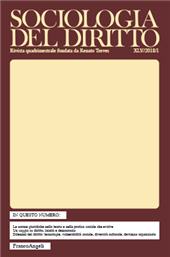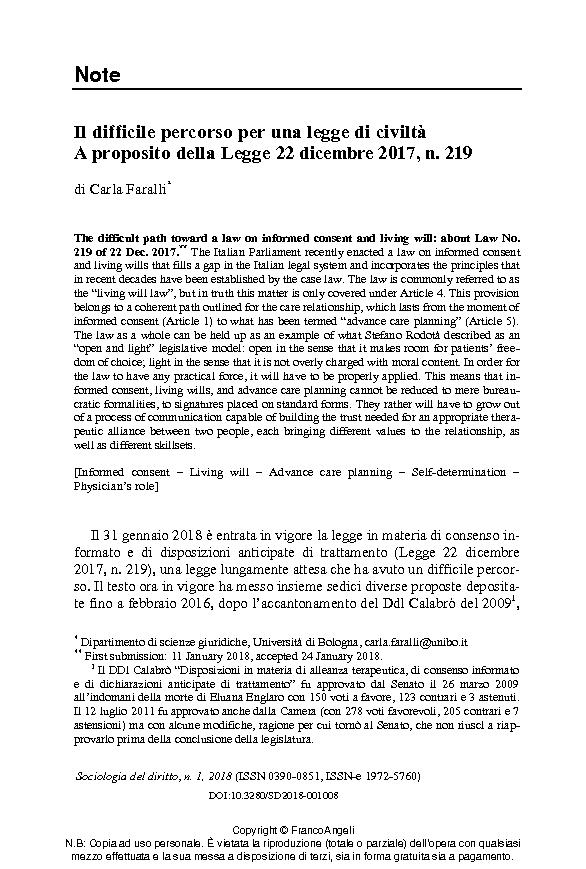Il difficile percorso per una legge di civiltà : a proposito della Legge 22 dicembre 2017, n. 219.
175-183 p.
The Italian Parliament recently enacted a law on informed consent and living wills that fills a gap in the Italian legal system and incorporates the principles that in recent decades have been established by the case law. The law is commonly referred to as the "living will law", but in truth this matter is only covered under Article 4. This provision belongs to a coherent path outlined for the care relationship, which lasts from the moment of informed consent (Article 1) to what has been termed "advance care planning" (Article 5). The law as a whole can be held up as an example of what Stefano Rodotà described as an "open and light" legislative model: open in the sense that it makes room for patients' freedom of choice; light in the sense that it is not overly charged with moral content. In order for the law to have any practical force, it will have to be properly applied.
This means that informed consent, living wills, and advance care planning cannot be reduced to mere bureaucratic formalities, to signatures placed on standard forms. They rather will have to grow out of a process of communication capable of building the trust needed for an appropriate therapeutic alliance between two people, each bringing different values to the relationship, as well as different skillsets. [Publishers' text].
Fa parte di
Sociologia del diritto : 1, 2018-
Articoli dello stesso fascicolo (disponibili singolarmente)
-
Informazioni
Codice DOI: 10.3280/SD2018-001008
ISSN: 1972-5760
MATERIE
PAROLE CHIAVE
- Informed consent, Living will, Advance care planning, Self-determination, Physician's role



